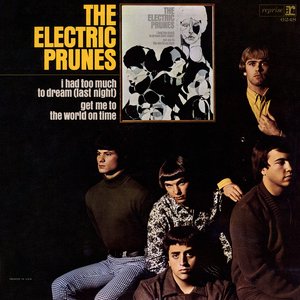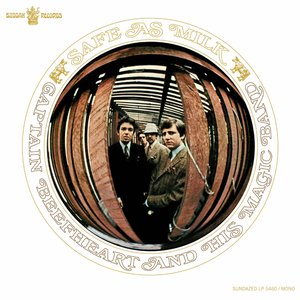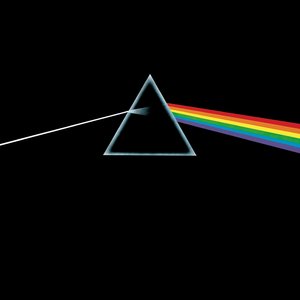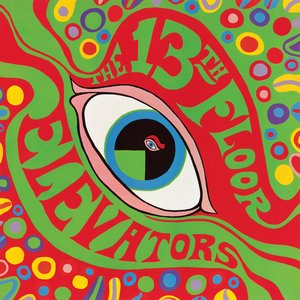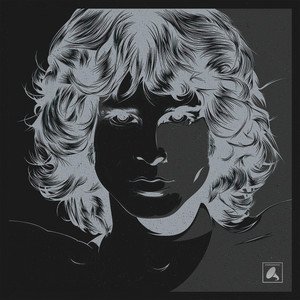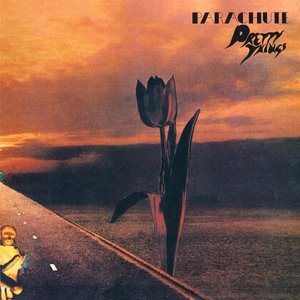Wiki
-
Release Date
3 January 1970
-
Length
13 tracks
The Madcap Laughs is an album by Syd Barrett, released on 3rd January 1970. It was his first solo album after being replaced in the band Pink Floyd by his old school friend David Gilmour.
The title of the album comes from a line in the song Octopus. After leaving the group, Barrett began recording sessions with former Pink Floyd-turned-Syd Barrett manager Peter Jenner in May 1968. Although the sessions were brief, the project was abandoned for almost a year while Barrett spent much of the year as a recluse. In April 1969, Malcolm Jones took over the project and Barrett began working on newer material, while reworking the 1968 recordings. Session musicians, namely, members of The Soft Machine, as well as Humble Pie drummer Jerry Shirley were also called in to augment Barrett's songs. It is still a mystery why Jones abandoned production responsibilities, at the end of May, so soon after having assumed them. Jones' recollections of the sessions are that he and Barrett got on well together and had in fact completed half of the album before the new producers took over. Roger Waters and David Gilmour were in the process of completing Pink Floyd's ambitious Ummagumma album when they got involved with The Madcap Laughs that July and helped Barrett finish his album, "in a two-day sprint" according to Rick Sanders, author of Pink Floyd (Futura Publications, 1976).
Sessions were pretty tortuous and very rushed. We had very little time, particularly with The Madcap Laughs. Syd was very difficult, we got that very frustrated feeling: Look, its your fucking career, mate. Why don't you get your finger out and do something? The guy was in trouble, and was a close friend for many years before then, so it really was the least one could do."
— David Gilmour
The album featured a rather unorthodox recording process, in which Syd would provide a backing track of his own singing accompanied by acoustic guitar, over which the session musicians would overdub the rest of the arrangement. However, Syd's playing and singing were highly erratic and unpredictable—he skipped or added beats and bars seemingly at random, or otherwise he would strum on a single chord for a long time before unexpectedly reverting back to the main portion of the song. This was all much to the frustration of the session musicians; a close listen to several tracks (in particular "No Good Trying" and "Love You") will reveal the backing band hovering uncertainly here, or being caught off-guard by a chord change there (during an interview, Robert Wyatt recounted that musicians would ask "What key is that in, Syd?" and Barrett would reply "Yeah", or "That's funny"). Syd would not allow the musicians to rehearse or re-record their overdubs, insisting that they sounded fine. After several months of intermittent recording, the album was finally deemed complete.
I liked what came out, only it was released far too long after it was done. I wanted it to be a whole thing that people would listen to all the way through with everything related and balanced, the tempos and moods offsetting each other, and I hope that's what it sounds like, I've got it at home, but I don't listen to it much now.
—Syd Barrett
The cover shows Syd Barrett in his living room.
"Octopus" was released as a single in November 1969 and the album itself followed in January 1970. It reached #40 in the UK at the time and was fairly well-reviewed.
The album was reissued in the early 1970's as record one of a double album, record two being "Barrett" his second album,as part of the Harvest Heritage series of reissues.
* The nude woman appearing on the inside record sleeve was an acquaintance of Syd Barrett's known as "Iggy the Eskimo". "When I arrived for 'The Madcap Laughs' photo session, Syd was still in his underpants… His lady friend of two weeks, 'Iggy the Eskimo' was naked in the kitchen…"
* Joe Boyd (producer of "Arnold Layne") had been looking for a follow up to the Purple Gang's "Granny Takes a Trip" single and asked Syd for a tape of his songs - "Boom Tune" (aka "Here I Go") was one on it the group were going to do, but unfortunately it never happened and the tape was lost (White Bicycles, Joe Boyd)
Album descriptions on Last.fm are editable by everyone. Feel free to contribute!
All user-contributed text on this page is available under the Creative Commons Attribution-ShareAlike License; additional terms may apply.


